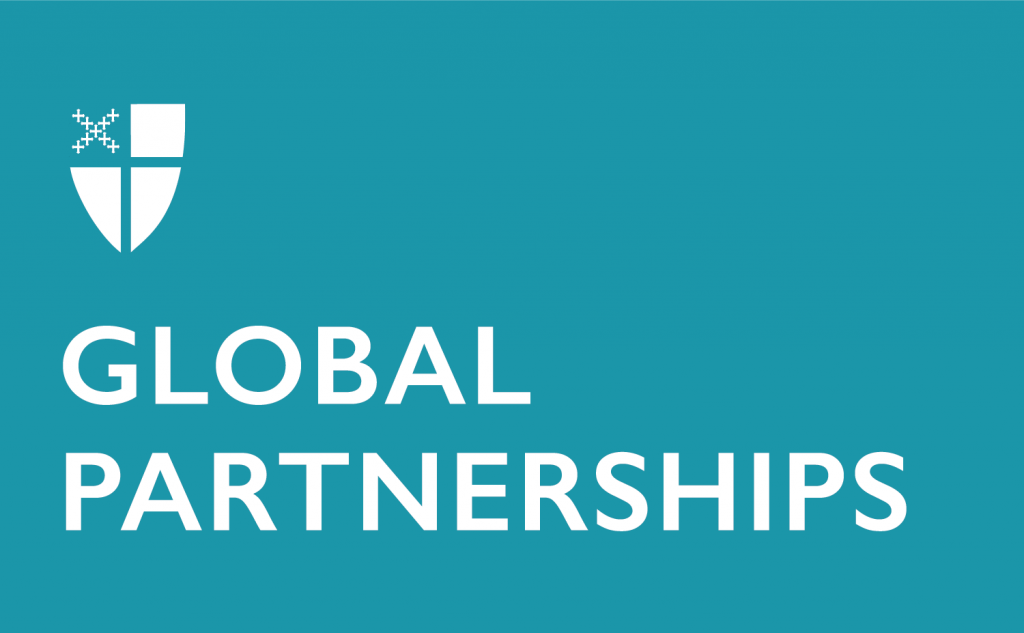International Day of the World’s Indigenous Peoples
International Day of the World’s Indigenous Peoples:
Promoting health and well-being among indigenous Episcopalians
Out of the depths have I called to you, O LORD; LORD, hear my voice; let your ears consider well the voice of my supplication. (Ps 130:1)
• L to R: Jasmine Bostock, Frank Oberly and Cohen Adkins at the Opening Ceremony of the UN Permanent Forum on Indigenous Issues in May.
August 9th is International Day of the World’s Indigenous Peoples, first proclaimed by the United Nations General Assembly in 1994. This year’s theme, “Post 2015 Agenda: Ensuring indigenous peoples’ health and well-being”, highlights access to health care as an important need that must be addressed to improve the lives of indigenous peoples.*
Access to mental health care, in particular, is vital to the health and well-being of young people as they traverse the milestones and formational experiences that will shape the rest of their lives. This point was stressed by indigenous Episcopal delegates – Jasmine Bostock, Cohen Adkins and Frank Oberly – in April at the United Nations Permanent Forum on Indigenous Issues. In a written intervention to a special session on “Youth, self-harm and suicide”, the delegates underscored the critical plight of indigenous young people, who suffer from alarmingly high levels of self-harm and suicide. They identified the need to address root causes of intergenerational trauma, implement structural change, care for the environment and restore and protect the rights of Indigenous Peoples in order to overcome this tragic trend.
The Revised Common Lectionary reading for Sunday, August 9th includes a passage in which King David orders the commanders of his armies to “deal gently for my sake with the young man Absalom”, his son, as they prepared to battle the forces that Absalom had gathered against him (2 Sam 18:5-33). In spite of this, Absalom is killed by David’s soldiers. King David is overcome with grief:”O my son Absalom, my son, my son Absalom! Would I had died instead of you, O Absalom, my son, my son!” David’s cry ripples outwards, affecting his family and community. His cry is the same as the one too often heard by families within our indigenous communities. Voicing that cry, bearing witness to that terrible, gut-wrenching reality, is one small step towards healing and wholeness.
The United Nations has proven a key forum at which indigenous Episcopalians can voice their cries and bear witness to their realities, both painful and positive. Under the umbrella of the Anglican Communion and The Episcopal Church, indigenous women and men, elders and young adults, have attended sessions of the UN Commission on the Status of Women and the UN Permanent Forum on Indigenous Issues over the past few years. They bring their voices and concerns to the attention of UN agencies, member states and non-governmental organizations in advocating on behalf of their local churches and communities. Once back home, they share their experiences and continue local advocacy in their communities. Many share reflections in reports and blogs, such as these by delegates Jasmine Bostock and Cohen Adkins from this year’s UN Permanent Forum on Indigenous Issues.
Nellie Adkins enjoying worship at the UN Commission on the Status of Women in March.
The Church is enormously proud of this year’s indigenous delegates: Nellie Adkins, Chickahominy, Diocese of Virginia (first official indigenous Episcopal delegate to the UN Commission on the Status of Women); Jasmine Bostock, Native Hawai’ian, Diocese of Hawai’i; Cohen Adkins, Chickahominy, Diocese of Virginia; Frank Oberly, Comanche/Osage, Diocese of Oklahoma (all three the first indigenous Episcopal delegates to the UN Permanent Forum on Indigenous Issues). May their voices and actions be blessed as they continue to ripple outwards from their communities, to the United Nations, to the world.
* The “Post-2015 Agenda” is the new sustainable development framework that will be adopted by members of the United Nations in September. Its 17 Sustainable Development Goals will be the new framework until 2030, replacing the 8 Millennium Development Goals expiring in December 2015.

